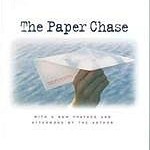Rumors of the Death of the Billable Hour Have Been Greatly Exaggerated
 Or so it seems to me. Lately, there has been a variety of articles proclaiming the death, or impending death, of the billable hour. So goes the argument: Billable hours misalign incentives between lawyers and their clients; law firms and lawyers have faced increasing pressure over recent years to redefine their business model and move away from the billable hour, at least in part; and in this economy clients have the motivation, the leverage, and the moxy to demand alternative billing arrangements from their lawyers.
Or so it seems to me. Lately, there has been a variety of articles proclaiming the death, or impending death, of the billable hour. So goes the argument: Billable hours misalign incentives between lawyers and their clients; law firms and lawyers have faced increasing pressure over recent years to redefine their business model and move away from the billable hour, at least in part; and in this economy clients have the motivation, the leverage, and the moxy to demand alternative billing arrangements from their lawyers.
In theory, this may be true, and perhaps large clients (as in those who spend enormous sums of money with their law firms on an annual basis) have put some of this theory into practice. But I’m not so convinced that the billable hour has earned its demise quite yet. For one thing I work as in house counsel at a Fortune 1000 company and I see very few alternative billing arrangements. (For another, I used to work at a big law firm that also saw few alternative billing arrangements.) That is due in part to our own taste for risk. After all, alternative billing arrangements must incentivize both parties, meaning the client may end up paying more for a given set of services than it otherwise would have under a billable hour system.


